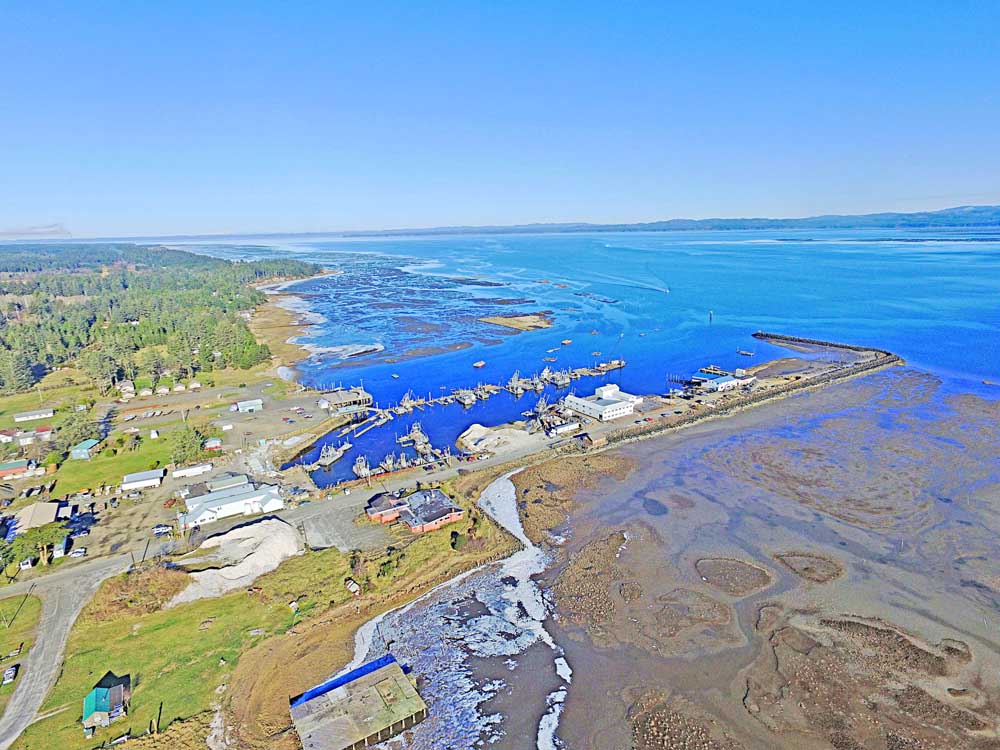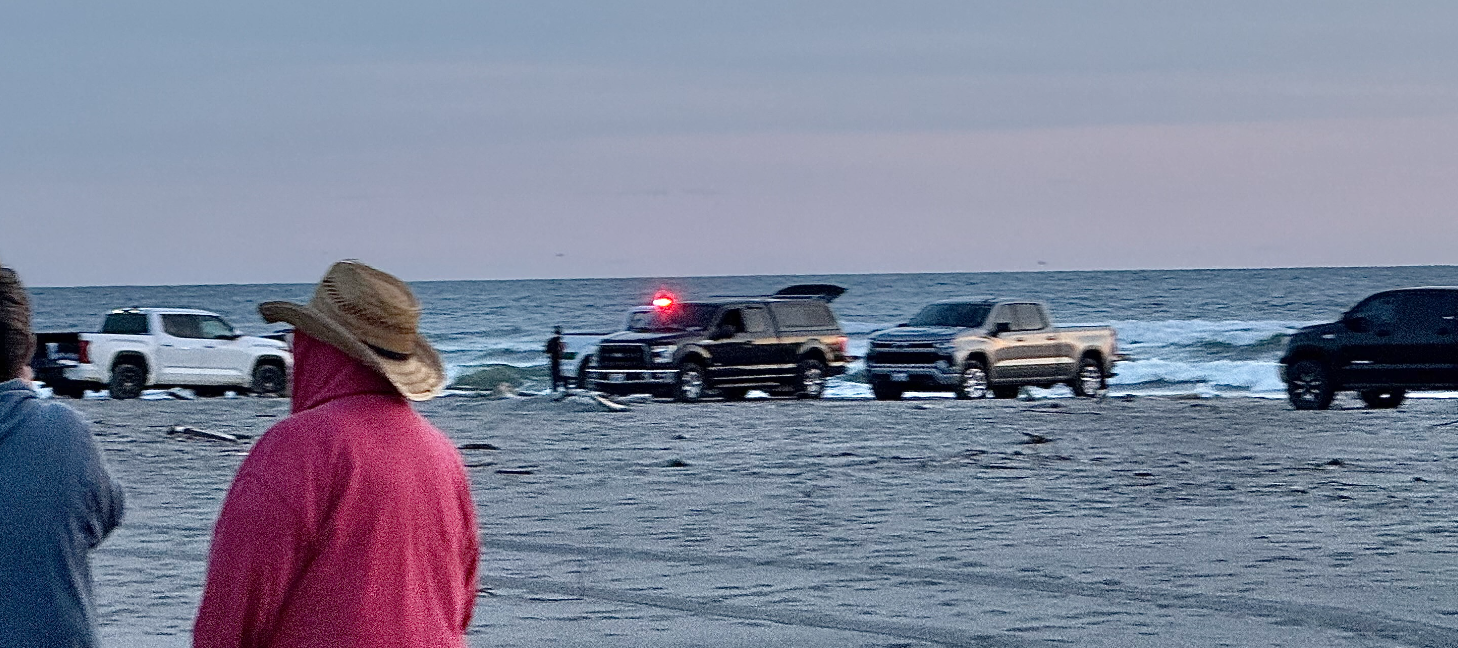Port’s defiance wearing on Ecology officials
Published 6:02 am Tuesday, August 29, 2023

- The Port of Peninsula was the subject of a new state inspection earlier this month.
NAHCOTTA — The state’s official concerns about the Port of Peninsula reached a new level after another inspection by the Washington Department of Ecology on Aug. 9 alleged that the port continues to defy orders.
Port Manager Jay Personius submitted a notice of intent to comply with previous orders issued by the agency, but his effort was incomplete and not submitted in the required way, Ecology said.
The port was first visited by Ecology personnel on May 24 and found to be in violation by not having a general boatyard permit, Storm Water Prevention Plan, or waste disposal permit. That inspection included the possibility of hefty fines against the port of up to $10,000 per day per violation, a potential sum totaling in the millions.
“The purpose of this [Aug. 9] inspection was to field verify on-site conditions compared to the activities described in the [Boatyard General Permit] application,” inspectors Adonia McKinzi and Steven G. Eberl stated in the report.
New inspection
According to the new 40-page report, which included 35 photos, Ecology officials inspected the small boat basin, boatyard, wash pads, wastewater and treatment system, a solids dewatering area, and the oyster transfer and fueling deck.
“Personius invited the Ecology representatives into the port office to discuss regulatory requirements and concerns,” McKinzi and Eberl state in the report. “Although Jay Personius certified in writing the [intention] to comply, he failed to submit the application through the WQwebPortal in a complete, accurate, and timely fashion.”
Instead, Personius emailed the overdue application directly to McKinzi in draft format.
‘The port had a productive recent meeting with the department of Ecology and remains committed to collaborating with them to clear up any misconceptions…’
Jay Personius, port manager
In an Aug. 29 email to the Observer, Personius said, “The port had a productive recent meeting with the department of Ecology and remains committed to collaborating with them to clear up any misconceptions as we enhance our boat repair facilities while upholding rigorous environmental safeguards, such as our zero pressure-wash water discharge, 100% washwater filtration and re-use, and comprehensive containment measures for other work.”
Although the application was incomplete, Ecology brought along Jen Smith, the Boatyard General Permit Applications administrator, to educate Personius on the issues in his draft application and how it could be completed.
According to the inspection report, Personius needs to explain how the port will dispose of wastewater, clarify where the facility where treated wastewater will be disposed, explain how the port will deal with rainwater or stormwater falling onto or off of the wash pads, and how the port handles and disposes of sludge.
The port manager asserts Ecology has been led astray by individuals with axes to grind, and says the Ecology vs. port conflict may result in litigation.
“Regrettably, some baseless claims, from individuals with personal agendas,” Personius said, “have been relied upon by the Department of Ecology in the last two reports. Ironically, by relying on that intentionally inaccurate information, Ecology has bolstered the port’s legal position should this matter proceed to court.”
Additional issues
On top of the already mountain of issues that have plagued the port, Ecology discovered new problems while touring the facility.
“Based on observations, at least sixteen drums of wastewater were observed staged in the wash pads with no off-site disposal plan described except for the three oily water drums destined for Emerald Services,” McKinzi and Eberl state in the inspection report.
“The described wastewater/stormwater treatment and re-use system described in the application was not evidenced in practice — nothing was coupled together,” they added.
McKinzi and Eberl concluded the inspection report reiterating that continued non-compliance by the port could result in fines of up to $10,000 per day per violation.
Records violations
It’s not just compliance with state requirements the port has an issue with, but also the state’s Open Public Meeting Act. The port’s commission was scheduled to meet at 11 a.m. on Monday, Aug. 28, but was called off at the last minute.
Under state law, meetings must be canceled at least 24 hours before they are scheduled to begin.
“By all intents and purposes, today’s meeting was cancelled,” Commissioner Bonnie Cozby stated Aug. 28, following an abrupt decision to not hold a port commission meeting. “They called it being adjourned until Aug. 30 because Commissioner [Bill] Derion requested that adjournment this morning, but a quorum was present, and there was no need to cancel/adjourn.”
“Bottom line, public funds are being wasted, actions taken by a partial board and the manager continue to place the port, its assets, and its future in jeopardy. We are not serving our customers and tenants nor those living in the port district. Potential financial risk in fees, penalties, interest and court costs may be substantial,” Cozby added.
Personius and the port also continue to be in violation of the state’s Public Records Act by withholding and not responding to records requests. The Chinook Observer has two open requests: one submitted on May 26, which has been “extended” by Personius for 120 days, and a second request on June 17, to which Personius did not respond at all.
Under Washington state law, the port could face up to a $100 per day fine for violation of the FOIA by not responding to the June 17 request within five business days, which would have been June 26.
A total of 44 business days have come and gone since June 26 and could cost the port up to $4,400.





